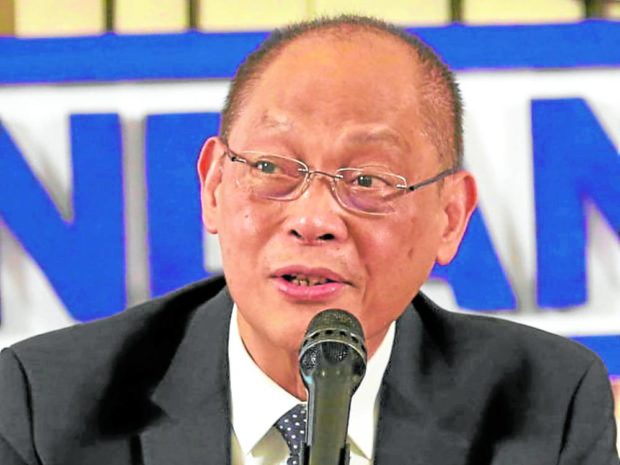Marcos team vows to make up for H1 underspending
President Marcos’ chief economic manager on Tuesday said the new administration would catch up with spending requirements after first-half disbursements went slightly below target, allowing the budget deficit to narrow by 5.8 percent to P674.2 billion.
In an interview, Finance Secretary Benjamin Diokno said it would be easier for implementing agencies to ramp up expenditures in the second half. Disbursements in the first six months had been tempered by the ban on new projects ahead of the May 9 presidential elections.
Based on the latest Bureau of the Treasury data, while spending on public goods and services from January to June rose by 8.9 percent year-on-year to P2.4 trillion, actual expenditures were 3.04 percent below the P2.48-trillion six-month program.
End-June tax and nontax revenues grew 15.9 percent to P1.73 trillion from the same six-month period last year. This level was 4.8-percent bigger than the P1.65-trillion target.
As of June, the Bureau of Internal Revenue’s (BIR) tax take rose 9.8 percent to P1.13 trillion, but still 2.8-percent below the P1.16-trillion goal. For 2022, the BIR aims to collect P2.44 trillion in taxes.
Article continues after this advertisementDue to the windfall from expensive oil and a weak peso, the Bureau of Customs’ (BOC) six-month collection of import duties and other taxes not only jumped 31.5 percent to P396.7 billion, but also exceeded the targeted P360.7 billion by almost a tenth. The new economic team this month hiked BOC’s 2022 target to P733 billion.
Article continues after this advertisementAs such, the actual fiscal deficit for the January-to-June period was 18.6-percent narrower than the P828.7-billion program.
The national government had set a full-year deficit cap of P1.65 trillion, equivalent to 7.6 percent of gross domestic product (GDP) versus the record P1.67-trillion deficit or 8.6 percent of GDP last year.
Fiscal road map
Under the Marcos administration’s medium-term fiscal framework, government revenues should reach P6.59 trillion in 2028 versus expenditures of P7.71 trillion to end its term with a budget deficit of P1.12 trillion, equivalent to 3 percent of GDP or similar to the prepandemic level.
By the end of the Marcos administration, the goal is to reduce the unemployment rate to 4-5 percent in 2028, from about 8 percent last year. “To reflect the increase in quality jobs, the percentage of wage and salaried workers in private establishments to total employed workers will increase from 48 percent in 2021 to a range of 53-55 percent in 2028,” the economic team said in a statement.
Meanwhile, Diokno said the government would:
- protect purchasing power and mitigate socioeconomic scarring by ensuring food security;
- reduce transport and logistics costs as well as energy cost;
- reduce vulnerability and mitigate scarring from the COVID-19 pandemic; and,
- ensure sound macroeconomic fundamentals.
For the medium term, Economic Planning Secretary Arsenio Balisacan said the focus would be: to create quality and green jobs; uphold public order and safety, as well as peace and security; and ensure a level playing field. INQ
